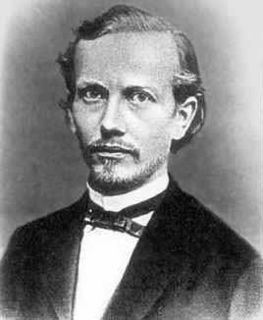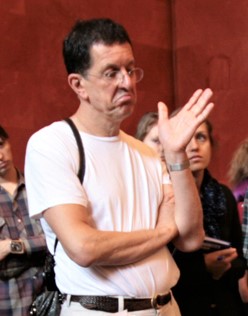A Quote by Paul Auster
There is nothing more terrible, I learned, than having to face the objects of a dead man. Things are inert: that have meaning only in function of the life that makes use of them. When that life ends, the things change, even though they remain the same. […] they say something to us, standing there not as objects but as remnants of thought, of consciousness, emblems of the solitude in which a man comes to make decisions about himself.
Quote Topics
About
Change
Consciousness
Dead
Dead Man
Decisions
Emblems
Ends
Even
Face
Function
Having
Himself
Learned
Life
Make
Makes
Man
Meaning
More
Nothing
Objects
Only
Remain
Remnants
Same
Say
Solitude
Something
Standing
Standing There
Terrible
Than
Them
They Say
Things
Things Change
Though
Thought
Us
Use
Which
Related Quotes
What I have to do is utilize as best I can the ideas which objects suggest to me, connect, fuse, and color in my way the shadows they cast within me, illumine them from the inside. And since of necessity my vision is quite different from that of the next man, my painting will interpret things in an entirely different manner even though it makes use of the same elements.
Intelligence makes clear to us the interrelationship of means and ends. But mere thinking cannot give us a sense of the ultimate and fundamental ends. To make clear these fundamental ends and valuations and to set them fast in the emotional life of the individual, seems to me precisely the most important function which religion has to form in the social life of man.
I have always directed my attempts at the figurative representation of objects by way of summary and not very descriptive brushstrokes, diverging greatly from the real objective measurements of things, and this has led many people to talk about childish drawing.. ..this position of seeing them (the objects) without looking at them too much, without focussing more attention on them than any ordinary man would in normal everyday life..
Man never ceases to seek knowledge about the objects of his experiences, to understand their meaning for his existence and to react to them according to his understanding. Finally, out of the sum total of the meanings that he has deduced from his contacts with numerous single objects of his environment there grows a unified view of the world into which he finds himself "thrown" (to use an existentialist term again) and this view is of the third order.
I learned a long time ago, Reuven, that a blink of an eye in itself is nothing. But the eye that blinks, that is something. A span of life is nothing. But the man who lives that span, he is something. He can fill that tiny span with meaning, so its quality is immeasurable though its quantity may be insignificant. Do you understand what I am saying? A man must fill his life with meaning, meaning is not automatically given to life.
My pictures are devoid of objects; like objects, they are themselves objects. This means that they are devoid of content, significance or meaning, like objects or trees, animals, people or days, all of which are there without a reason, without a function and without a purpose. This is the quality that counts. Even so, there are good and bad pictures.
A thought has no size in the physical sense but is vast as compared to the physical acts and objects into which it is later precipitated. The power of a thought is enormous and superior to all the successive physical acts, objects, and events that body forth its energy. A thought often endures for a time much greater than the whole life of the man who thought it.
The meditation I am talking about is not a meditation on something. If you light a lamp and remove all the objects surrounding it, the lamp will still go on giving light. In the same way, if you remove all objects from your consciousness, all thoughts, all imagination, what will happen? – only consciousness will remain.
Man is indeed lost, but that does not mean that he is nothing. We must resist humanism, but to make a man a zero is not the right way to resist it ... [The] Christian position is that man is made in the image of God and even though he is now a sinner, he can do things that are tremendous - he can influence history for this life and the life to come, for himself and for others...From the biblical viewpoint, man is lost, but great.
Without perceiving things through the old filter of past conditioning and conceptualization, one can sense the universe is intensely alive. Even so-called inanimate objects - I often pick up little objects and just look at them and sense that they are alive. Physicists actually confirm that what we perceive as dead matter is not dead at all. Everything is an intensely alive energy field. That aliveness is only an aspect of the aliveness or life that I am.
The problem of reconciling human suffering with the existence of a God who loves, is only insoluble so long as we attach a trivial meaning to the word "love", and look on things as if man were the centre of them. Man is not the centre. God does not exist for the sake of man. Man does not exist for his own sake. "Thou hast created all things, and for thy pleasure they are and were created." We were made not primarily that we may love God (though we were made for that too) but that God may love us, that we may become objects in which the divine love may rest "well pleased".


































